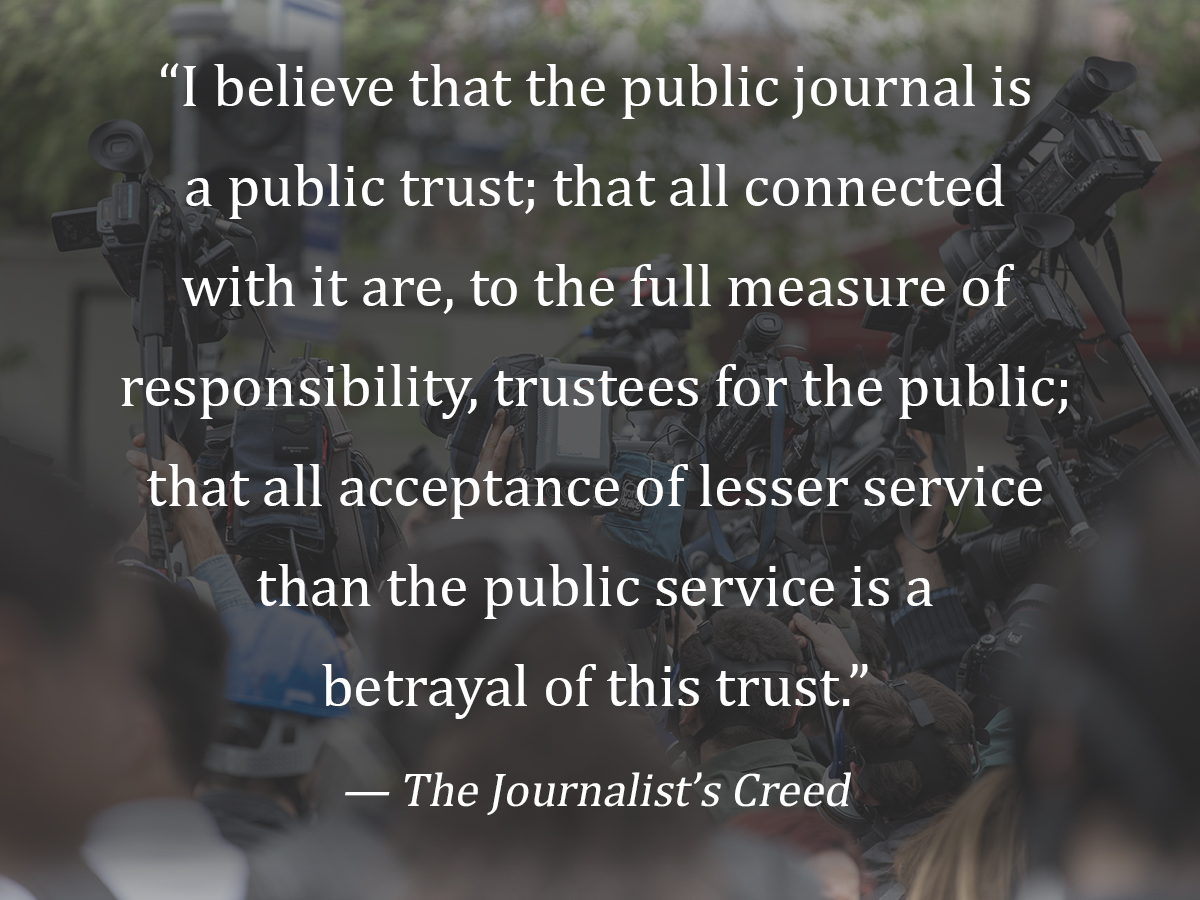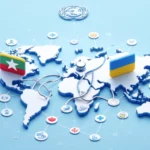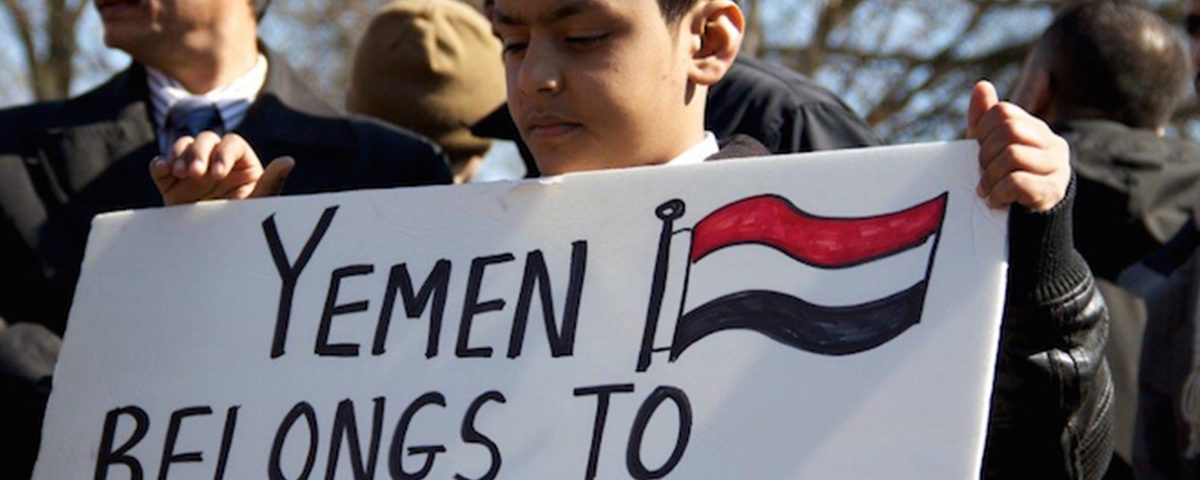
“I believe that the public journal is a public trust; that all connected with it are, to the full measure of responsibility, trustees for the public; that all acceptance of lesser service than the public service is a betrayal of this trust.” — The Journalist’s Creed
07/18/2018
JLN expands Universal Health Coverage to Myanmar and Ukraine
05/01/2019Last weekend in the Yemeni capital of Sanaa, a devastating explosion by Arab coalition fighter jets killed 69 people and wounded 250, according to recent reports by Aljazeera. The United Nations estimates that more than 150,000 people have been displaced and over 750 have lost their lives. About 25 million Yemeni citizens have endured shortages of food, water, medicine and electricity as a result of a naval, air and land blockade. To add more to the chaos, both ISIS and Al Qaeda have taken advantage of the growing instability in order to claim unprecedented territory.
For our Partners Yemen colleagues it wasn’t too long ago when Yemeni youth actively participated in their communities as mediators in a youth cross-tribal conflict mitigation program. Amir, a youth participant in the program caught the trainers attention as one of the least active members. A troubled youth, Amir was distant and hesitant about the program. But taking into account his past, this distance was justified.
Amir joins thousands of youth in unemployment in Yemen and the Middle East. Educated with a bachelor’s degree in computer science, he and others like him sit idly with nowhere to turn for employment and a future. Nowhere, but Al-Qaeda.
“Three of my high school classmates joined Al-Qaeda and are now dead…They were desperately hopeless about their future,” Amir said.
Fortunately, Partners Global and Partners Yemen were there to offer another choice for Amir and his peers. By providing another choice, and most importantly hope; Amir was given another chance to imagine a better future for themselves and for the future of Yemen. With the support of the Berghof Foundation, the program helped mediate youth peer-to-peer conflicts; train millennials to resolve and prevent conflict; and ultimately prepare youth to advocate for social causes to district councils and tribal leadership.
As a young Peace Ambassador, Amir and his young colleagues developed critical leadership skills and were encouraged to fully realize the impact of conflict in their communities. These young Peace Ambassadors gathered a ranged of diverse perspectives, and shared the outcomes of their facilitated discussions with neighboring districts, which they subsequently shared with their local leaders.
Amir was a shining example of the impact youth can have in their communities. Over time he began joining the discussions and voluntarily taking leadership roles in the youth council. He has resolved conflicts in his neighborhood, built great connections with social figures and utilized his skills for the youth council’s benefit by arranging a meeting with the Mosque Imam and neighborhood leaders.
Yet, one of the most notable displays of courage and leadership was in late September 2014, when his community witnessed a large “sit-in” of protestors that demanded the secession of the Khormakser district of Aden. Tens of thousands of large tents were set up, representing youth from various regions of Southern Yemen. Amir, now the president of the youth council, along with 18 additional youth from his neighborhood decided to create a technical supervisory committee to monitor the square and resolve conflicts among youth, protestors, and residents. As a committee, volunteers assisted peaceful protestors with tent arrangements and crowd control within the public spaces. The youth council even used their own money to purchase traffic safety vests to stand out.
“I want to protect as many lives as possible,” Amir said repeatedly.
But soon after protesters tried to seize the local Army Base, leading to clashes between the army and protestors. As a result, two people were killed and dozens injured. Following the clashes, Amir and the youth volunteers created a human barrier by linking arm-in-arm in front of the military base, post office and other government faculties to protect protesters from clashing with security forces. Many protesters called Amir and his fellow volunteers “traitors” for preventing the demonstration from escalating to violence and gaining momentum. But Amir and his fellow volunteers just did not see the point of violence. “I want to protect as many lives as possible,” Amir said repeatedly.
As Amir admirably displayed his leadership, young women have also arose to the call of action due to the program’s women empowerment component. Nisma, one of the young women from the youth council has continued her commitment to her community by volunteering at the local hospital as a nurse. Her accounts of the day-by-day horrors and the severity of the humanitarian crisis, depict a chilling account of the world in which these young people currently live. “The situation is insane,” she accounts.
Both Partners Global and Partners Yemen are proud to see the continued commitment of youth in their communities, especially as they attempt to give a voice about the dire conditions during this difficult time. Even during this crisis in Yemen, young people need to be engaged and shown how they can act as catalysts for positive change. To be these catalysts, young Yemenis must be shown support and respect as important role players in shaping Yemen. Now more than ever, they need us to help them develop the decision-making capabilities to become strong, proactive leaders. With few outlets for their vaulting energy and pent-up frustrations due to the violence that engulfs their daily lives, it is clear that Yemeni youth are increasingly becoming alienated and disenfranchised.
Young Yemenis have great potential to lead their country and cannot be forgotten by their international colleagues when civil unrest increases. When the dust settles and the cries are hushed, and when the tremor of bombs are muted, then we will see again the rebuilding of Yemen by these great young leaders. When that time comes, our global colleagues and Partners Yemen will be ready to help them lead again.
Originally published on the Partners Global Blog: http://blog.partnersglobal.org/yemeniyouthconflictresolution/
Edited: 7/18


